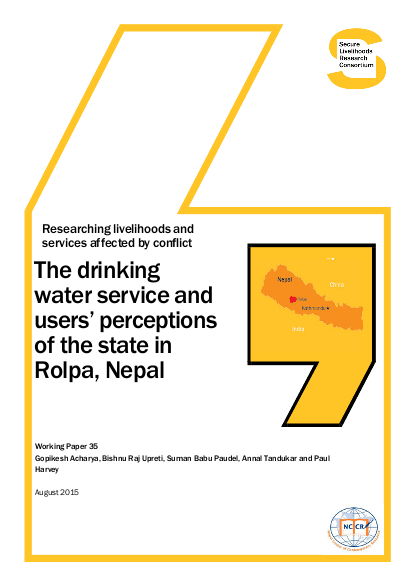
Despite attempts by the Nepalese government to improve local governance of water, access to drinking water in the rural and mountainous regions of Rolpa is still poor. Difficult terrain, low rainfall, lack of technical knowledge and poor infrastructure all contribute to the challenges. But charting practicable paths for improving water management in the face of increasingly scarce water supplies is critically important for sustaining local livelihoods and for improving people-state relations. To that end, four recommendations are proposed. In the wake of the recent devastating earthquake, urgent action is essential. This paper is the first in a series on basic services in Nepal.